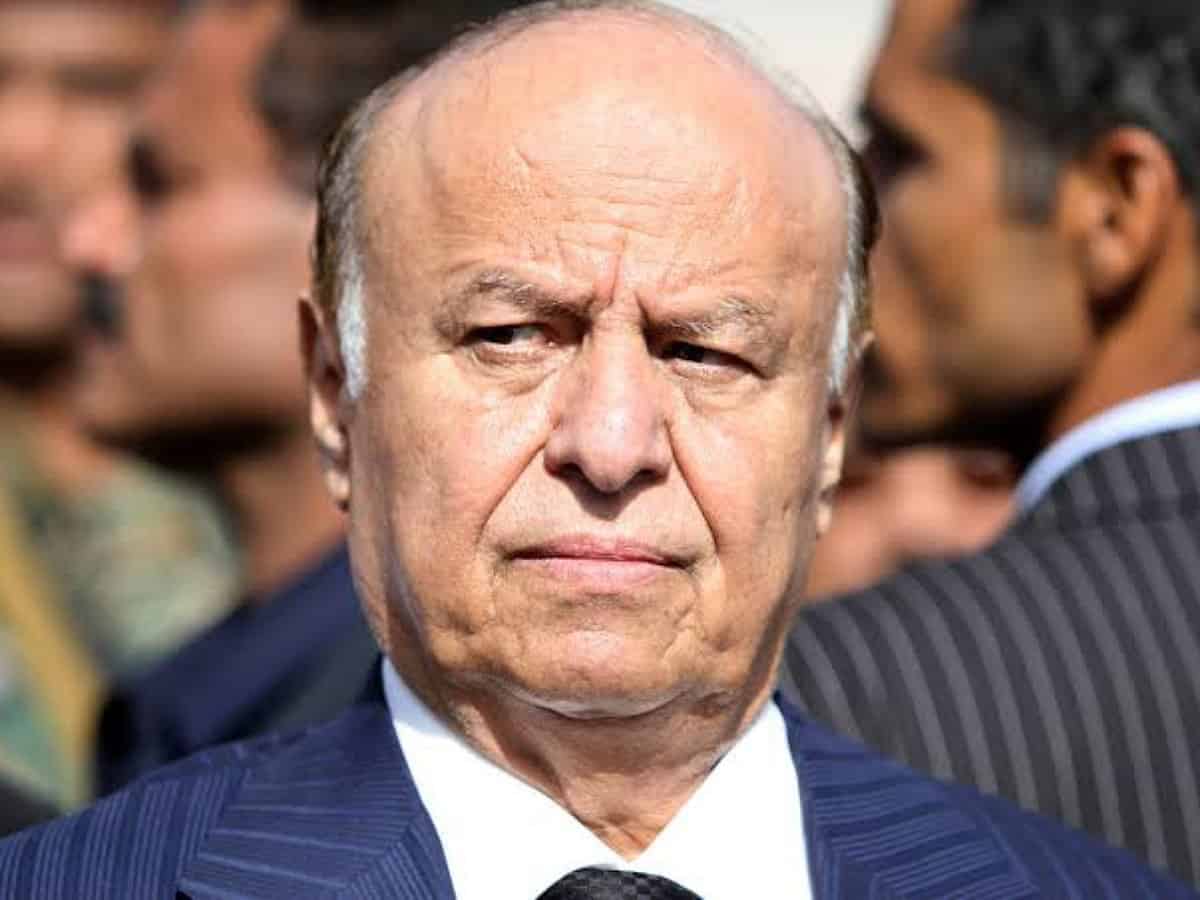
Sanaa: Yemen’s exiled president stepped aside and transferred his powers to a presidential council Thursday, as international and regional efforts to end the country’s long-running civil war gained momentum with a two-month truce.
Saudi Arabia and the United Arab Emirates, major players in the war, appear to have had a role in President Abed Rabbo Mansour Hadi’s decision, quickly welcoming it with a pledge of $3 billion in aid. The head of the new council has close ties to Riyadh.
It remains to be seen how the development will impact Yemen’s grinding conflict. A Saudi-led coalition of which the UAE is a member has for years been fighting the Iran-backed Houthi rebels to restore Hadi’s government to power.
A series of U.N. mediation efforts have yielded little fruit, and fighting, airstrikes and missile attacks had been escalating in the war until the cease-fire took effect.
In a tweet, the Houthis’ top negotiator Mohammed Abdul-Salam dismissed the appointment of the new council. The rebels have in the past benefited from squabbles among their rivals. “Our Yemeni people are not concerned with any illegitimate decisions made by illegitimate parties beyond their boundaries,” he tweeted.
Peter Salisbury, Yemen expert at the International Crisis Group, described the power transfer as “A Big Deal” and the “most consequential shift in the inner workings of the anti-Houthi bloc since war began.”
Hadi, 76, said the newly established council will run the government and lead negotiations with the Houthis, according to a statement aired on state-run media.
The development, which could unify the anti-Houthi camp after years of infighting and disputes, was almost certainly orchestrated in Riyadh where Yemen’s pro-government and pro-Saudi factions have been meeting over the past week to discuss efforts to end the war.
“I irreversibly delegate to the Presidential Leadership Council my full powers,” Hadi declared on Yemen’s state-run TV. He also sacked Vice President Ali Mohsen al-Ahmar, a powerful military figure, and delegated al-Ahmar’s powers to the presidential council.
The presidential council is chaired by Rashad al-Alimi, an advisor to Hadi and former interior minister with the government of late strongman President Ali Abdullah Saleh. Al-Alimi enjoys close ties with Saudi Arabia and the powerful Islah party — the Yemeni branch of the transnational Islamist movement the Muslim Brotherhood.
Yemen’s civil war started in 2014, when the Houthis, a religious movement turned rebel militia, seized the capital of Sanaa, forcing Hadi and his government into exile in Saudi Arabia. Months later, the Saudi-led coalition entered the war to try to restore Hadi’s government to power — but the war over the years turned into a stalemated proxy conflict with neither side winning.
Hadi’s exile distanced him from events on the ground, with his Saudi backers preventing him from returning to Yemen and the southern port city of Aden — the new seat of the exiled government — allegedly over safety issues. His administration was accused of gross mismanagement and government employees largely went without salaries.
Separately, Aden became the scene of infighting among the coalition when UAE-backed separatists briefly overtook the city in 2019. A Riyadh-brokered deal later that year attempted to reconcile the separatists and Hadi’s forces but power struggles have persisted.
Hadi’s rule was also undermined by the UAE’s influence in the territories nominally under his control. The UAE trained, financed and armed militias in Yemen and set up prisons.
Yemen’s war has killed more than 150,000 people, including over 14.500 civilians, and created one of the worst humanitarian crises in the world. This month, the warring sides announced a two-month cease-fire — the first nationwide truce in Yemen in six years — starting with the Muslim holy month of Ramadan.
Saudi Arabia welcomed Hadi’s move and urged the presidential council to embark upon U.N.-led negotiations with the Houthis to find a “political, final and comprehensive” settlement to the conflict, according to the state-run Saudi Press Agency. Powerful Saudi Crown Prince Mohammed bin Salman has also met with the council head and its members, Saudi state-run TV reported.
The council has seven other members with political and military influence on the ground, including Aydarous al-Zubaidi, head of the secessionist Southern Transitional Council — an umbrella group of heavily armed and well-financed militias propped up by the UAE since 2015.
Sheikh Sultan al-Aradah, the powerful governor of energy-rich Marib province, was also named a member of the council. So was Tariq Saleh, a militia leader and nephew of the late president who has close ties with the UAE.
Hadi was named president of Yemen in 2012 with a mission to oversee a democratic transition following its Arab Spring uprising that ended Saleh’s longtime rule.
Also Thursday, talks hosted by the Saudi-based Gulf Cooperation Council over the Yemeni war entered their final day. The Houthis have boycotted the GCC efforts because they were taking place in Saudi Arabia, their adversary’s territory.
Jordan and Egypt have welcomed Yemen’s newly established presidential council. The Arab League’s Secretary-General Ahmed Aboul Gheit also expressed his support, saying he hoped the council would lead toward peace.
He also called on the warring sides to respect the current truce as a gateway to “serious negotiations that could eventually end the suffering of the Yemeni people.”
